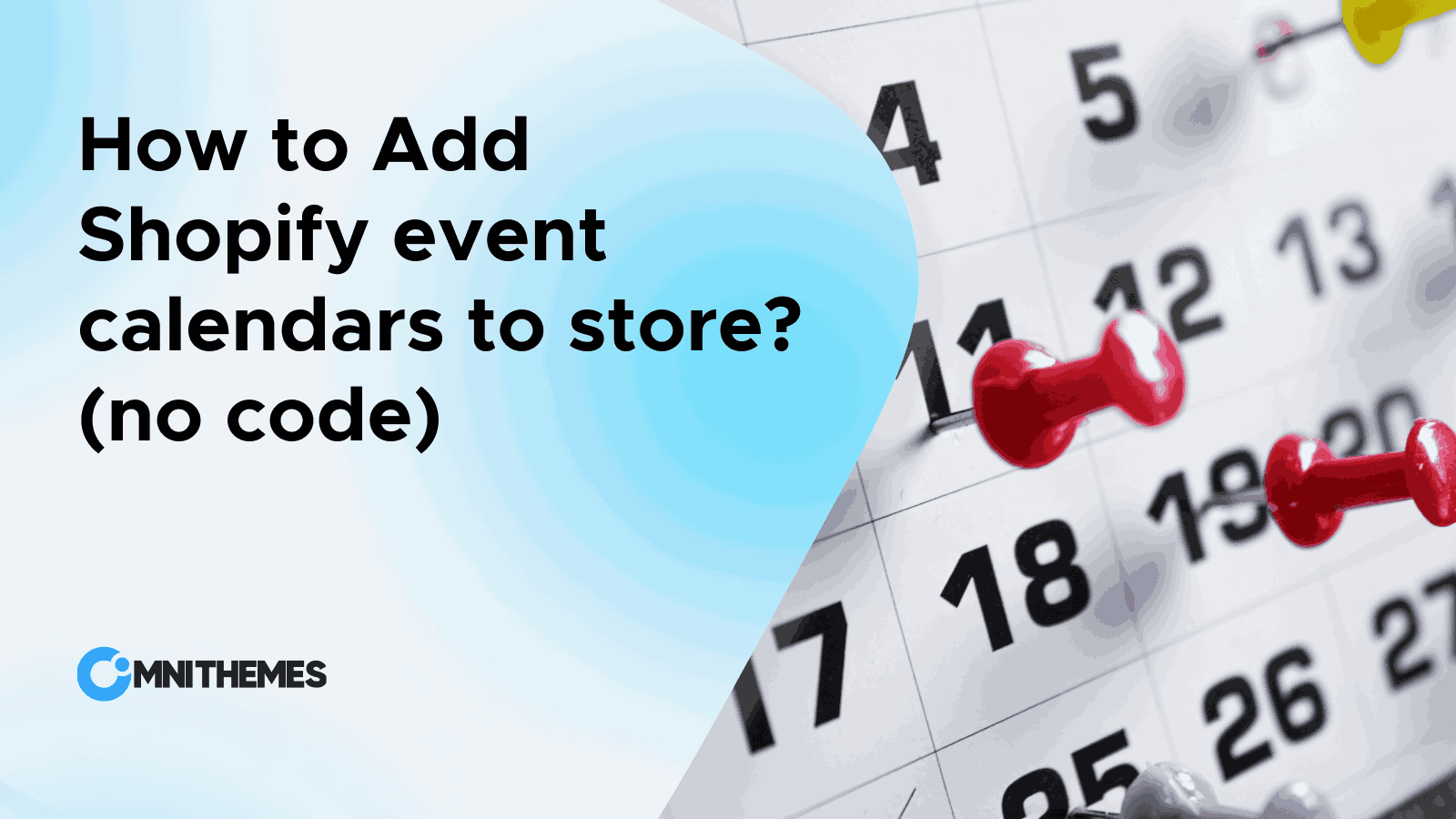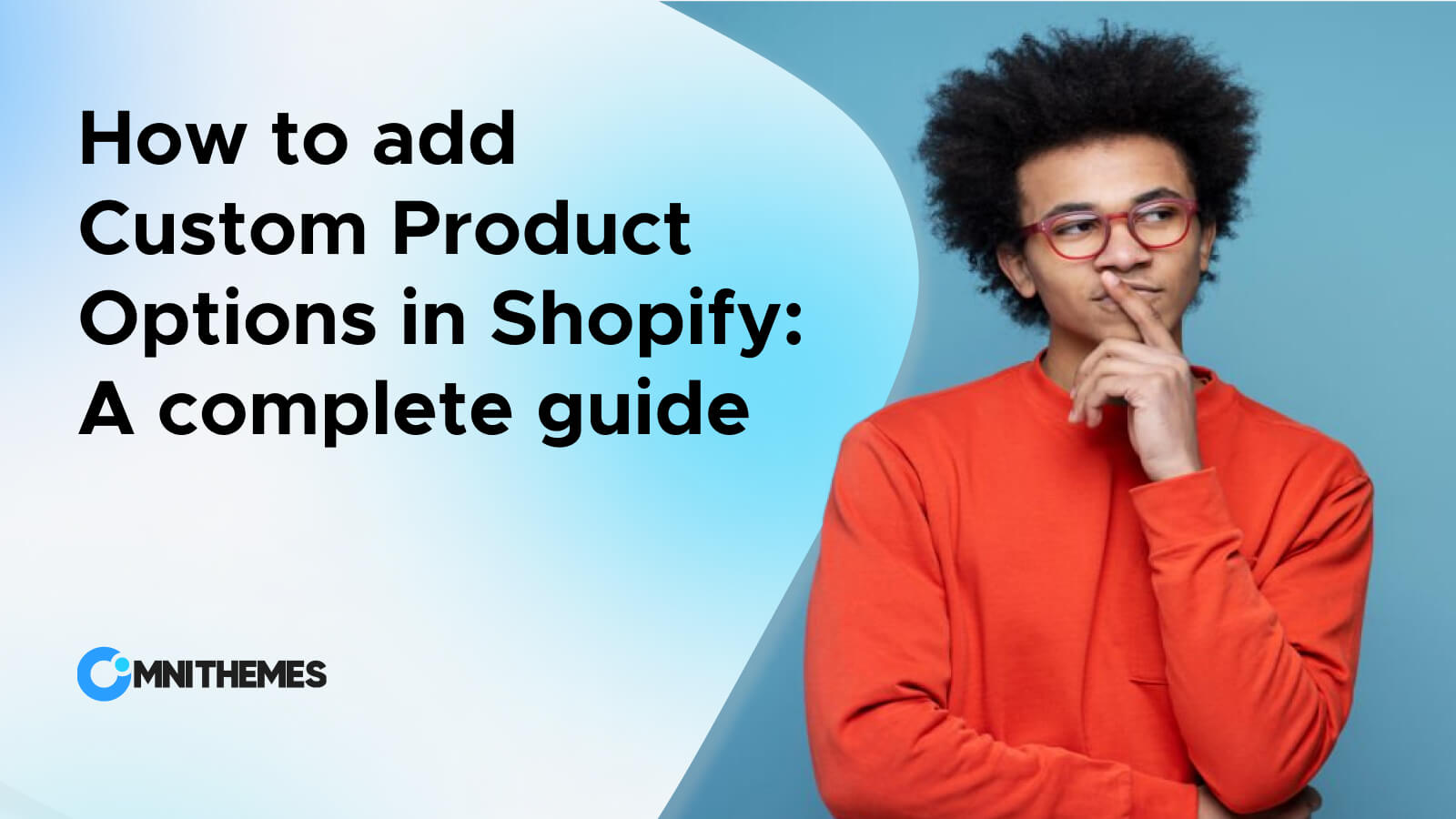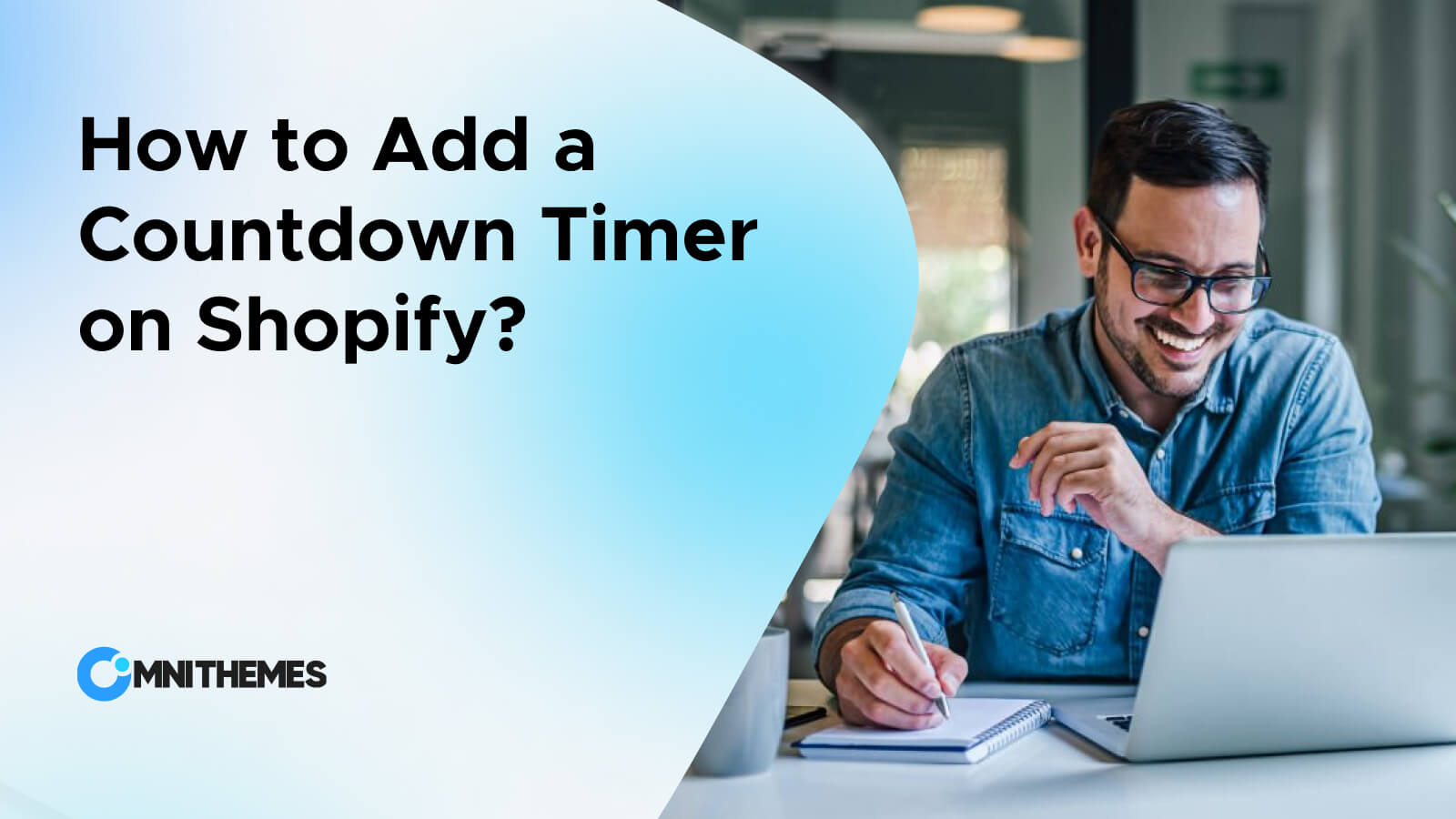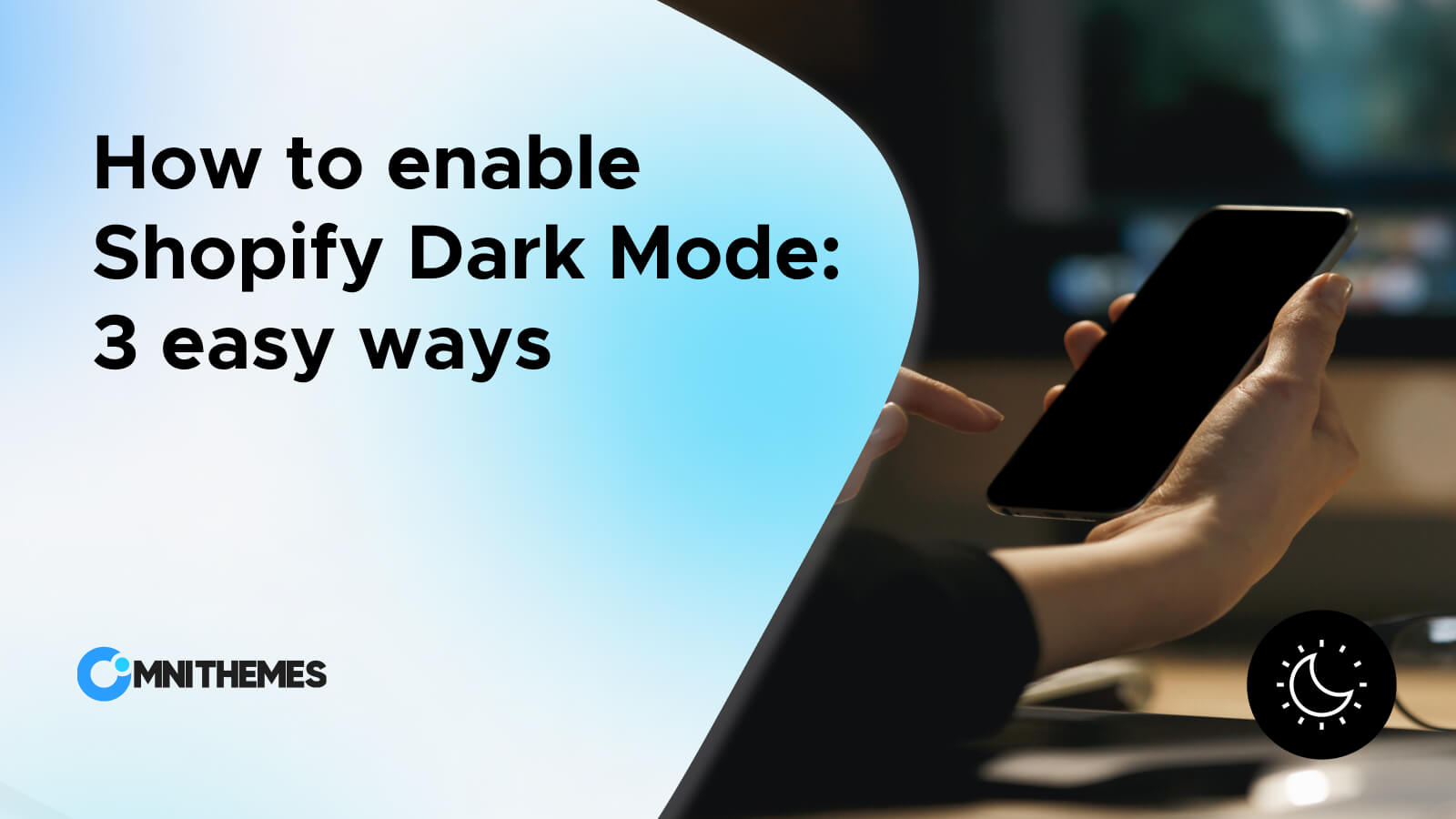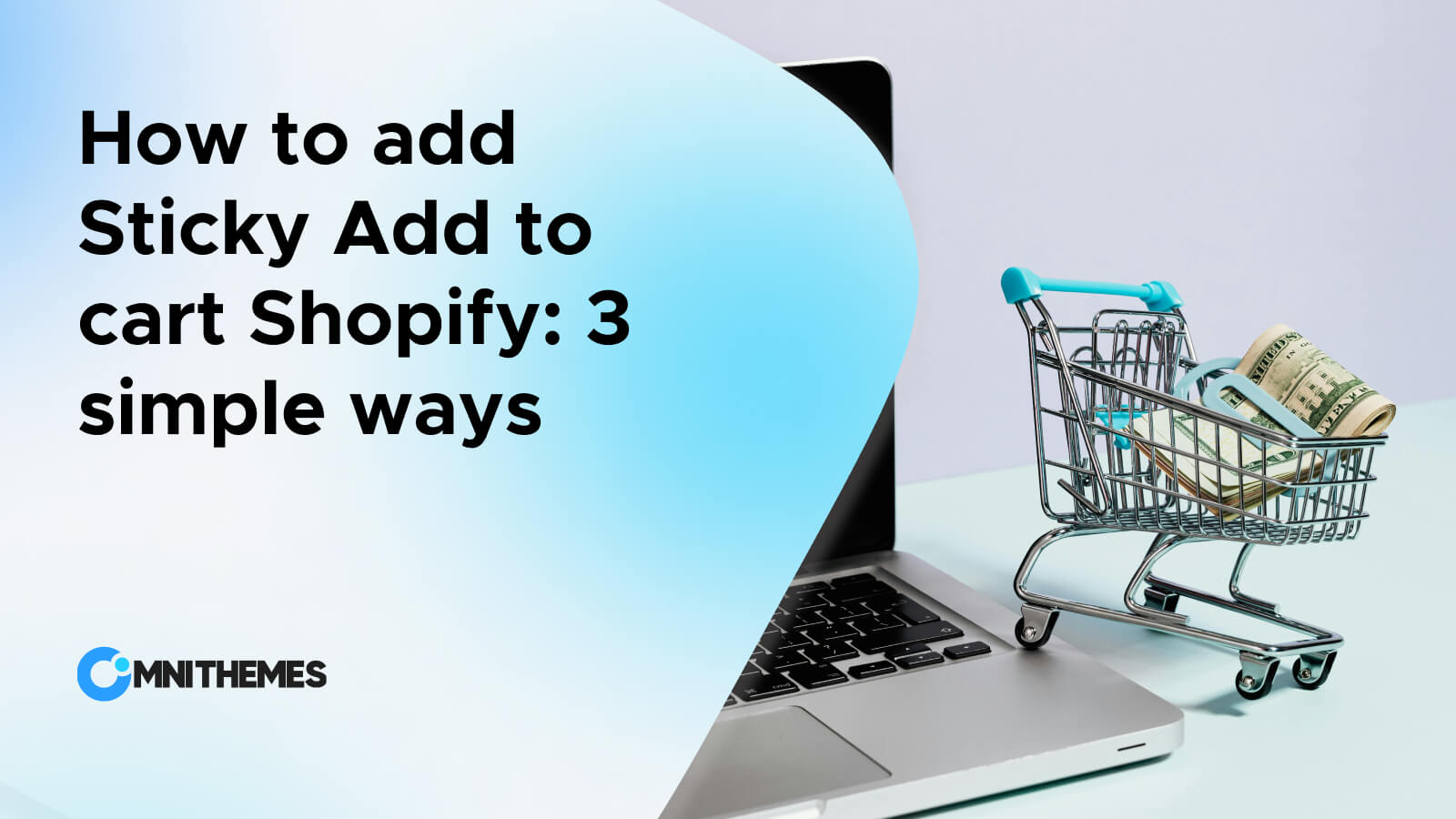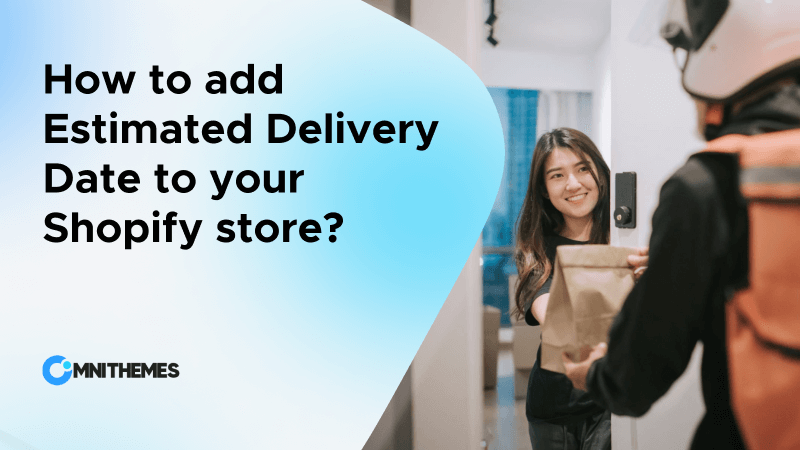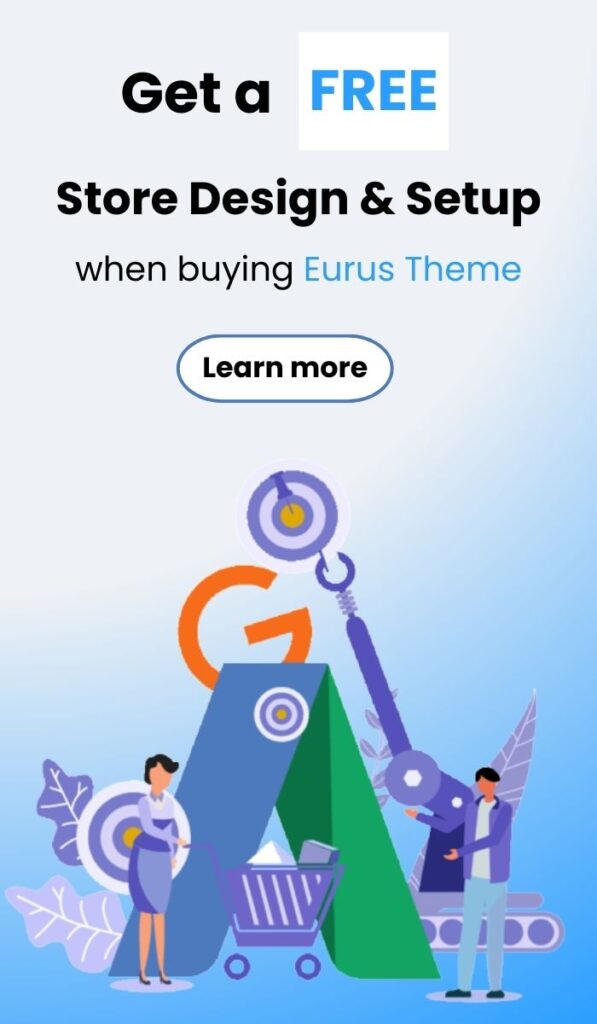In this fast-moving environment of e-commerce, your store must be “a close friend” to the customer by engaging and updating them. An influential tool in maximizing your store’s engagement and pushing sales is the event calendar. Whether you are doing webinars online, launching products, running flash sales, or even in-store events, it really can do wonders if you have an event calendar.
Let’s dive into what event calendars are, how to add Shopify event calendars to Shopify Store, and the best solutions for your specific needs.
What is the Shopify Event Calendar?
An event calendar is a tool that allows businesses to manage and display upcoming events in an organized and appealing way.
It syncs fully with your Shopify store, ensuring that customers can see what events are on time, when they are scheduled, and any other relevant details. It is an important feature for businesses whose engagements are driven by events—an event to launch a product, a seasonal sale, or a workshop or community gathering.
Benefits of event calendar Shopify
You might be wondering, what powers this Event Calendar in Shopify can bring to your store. Just by making this little buddy appear in your store, you can:
- Maximize your event’s impact: Shopify Event Calendar helps your event look neat and compact, easy for your visitors to scan through the important information, catch their attention, and ultimately persuade them to participate in your store’s event, creating the feeling of excitement for your buyers.
- Seamless integration:This feature often empowers your store with automatically gathering, tracking, and syncing to other platforms in just a few simple clicks.
- Enhance customer experience: Help your customers find an event they’ll love, effortlessly. Event Calendar in Shopify allows customers to RSVP or add events to their personal calendars, thereby further sealing their attachment with your brand.
- Get data insights: Keep track of which of your events resonate the most. This is great information to have for planning future promotions and to understand your customer’s interests.
- Boost sales: Special events are a proven way to drive sales, and your calendar will show up as a reminder; even better, you can include direct links to relevant product pages.
With an event calendar on Shopify, you give your site a more proficient look, while keeping all your events in one place and improving attendance at the events. It infuses some sort of professional touch and organizational level for a store, for the customer to plan participation and engagements with your brand.
How to Add Shopify Event Calendar to Your Store
No worry if you are not familiar with coding, adding the Shopify Event Calendar to your store can be as easy as a snap!
There are two main ways to add an event calendar to your Shopify store: using themes that support this feature or using dedicated apps.
Let’s explore both options, talking about how to make the Shopify events calendar appear on your store, and what are the pros and cons of each method.
Using Themes that Support the Event Calendar Feature
One of the simplest ways to add an event calendar to your Shopify store is to choose a theme that already includes this feature. This method is cost-effective, easy to set up, and integrates smoothly with your store’s existing design.
Below are some of the most popular & comprehensive themes you can choose to add to the Shopify event calendar feature.
Eurus Theme
Eurus theme is one of the first Shopify themes pioneering in offering a fully integrated Shopify event calendar feature. This theme not only provides a comprehensive calendar but also allows the user to set a unique “buy tickets” feature. With this feature, your customers can purchase event tickets directly from the calendar. This integration is seamless and eliminates the need for third-party ticketing services, reducing potential conflicts and ensuring a smooth user experience.
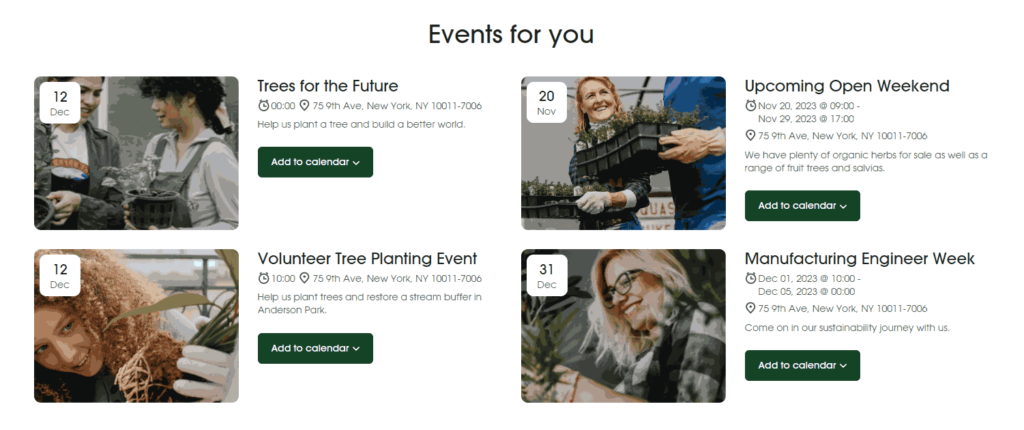
By choosing the Eurus theme, you get:
- Unlimited event listing: Have many events at the same time? You have the space to show them all! With Eurus Theme, there are no limits to adding more event information to your website.
- Ticket sales: Selling your event tickets directly under the event information, creates a seamless customer experience. Or, you can create and link your product to the event to sell them as tickets if you do not want to use another ticket-selling service provider.
- Quick “Add to calendar”: Just sit back and relax, because Eurus will make everything automated for you. If the customer is interested in your event, they can simply click to integrate the event into their personal calendar: Apple, Google, Outlook, Yahoo, Ical.
- Map Integration: No need to switch tabs just to view the location. Eurus theme provides a built-in map, that powered by Google Maps, pops up right on the page, pinpointing the event location and offering turn-by-turn directions – all with a tap.
- Adjustable time zone & format: Choose your most suitable time zone and time format (12-hour or 24-hour) to make it most convenient for your “party guests”.
- Customization: No worry if you let your creativity run far, Eurus Theme will ensure your Shopify Event calendar matches the branding and style of your store. Adding borders, changing color, image ratio, text size, everything you want! Plus, you can freely change the button text to create the most appealing CTA (no coding needed).
Stiletto Theme
The Stiletto theme for Shopify includes an Event Calendar feature that allows you to promote upcoming events directly in your store. This feature is perfect for showcasing events like sales, classes, or workshops. You can customize the calendar to match your store’s design, including adjusting the color palette, font size, and style.
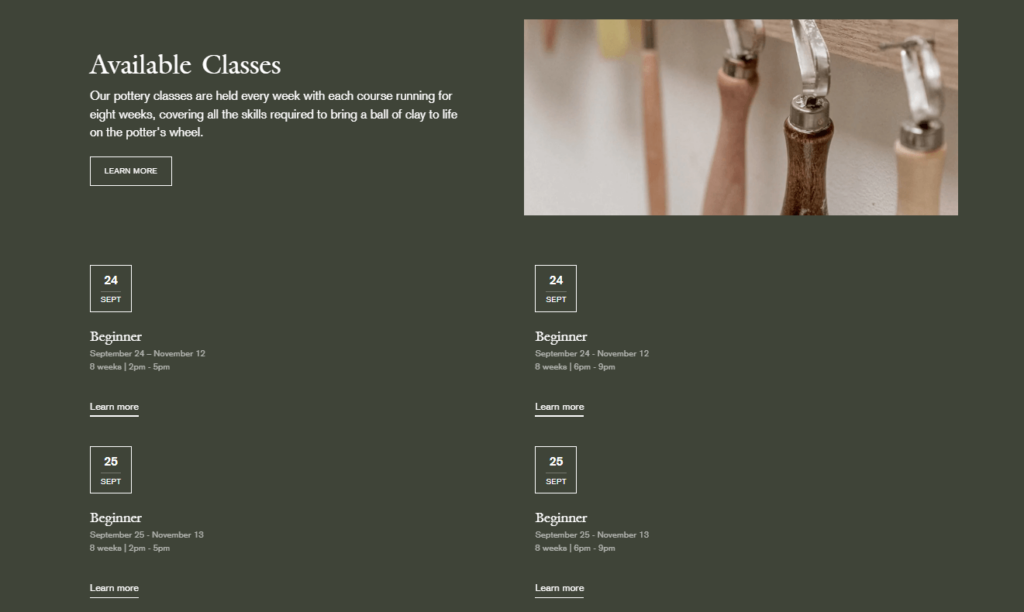
With the Stiletto theme, you get:
- Eventbrite integration: Eventbrite is an event planning and ticket sales website. The Stiletto theme lets you add the Access token from Eventbrite to sync and display upcoming events.
- Customization & Animation: Create personalized event listings by adjusting the heading, subheading, and image ratio, or add a touch of dynamic flair with animation.
- Selling events: The Stiletto theme allows you to set up your event as a digital product and checkout just the same as your Shopify store product. This is more suitable for classes or workshops. You could add more detailed information for the event, and push the visitors to sign up with a seat availability countdown.
You can get the Stiletto theme’s price at $350, suitable for the need to sell classes or workshops with multiple options available. If you already have your Eventbrite prepared, using Stiletto can save you time and effort by integrating all the events with one click. Additionally, the Stiletto theme can equip your store with many other useful features.
Local Theme
A great option for stores working in the food industry, the theme is ideal for stores with age-restricted products, who have many physical store locations.

Some notable characteristics of the Shopify event calendar on Local theme:
- Expandable Information: Keep event details organized and concise with collapsible sections that users can expand to view more information.
- Contact Form Integration: Allow attendees to easily inquire or RSVP directly from the event listing using a built-in contact form.
- Open First Toggle Default: Enhance the user experience by automatically displaying the first event’s details upon page load. Also, you can put the most highlighted event on the first row, making it more outstanding to your customers, without asking them to open it by themselves.
- Customization Options: Tailor event descriptions, dates, times, and locations to your specific needs. Adjust colors, fonts, and layouts to match your brand aesthetics. You can also link with the dynamic content set up in the Shopify meta field & meta-object.
The theme is offered at $350, provides a diverse feature theme that helps to showcase elegant products, and is packed with promotional tools, making it a tool for you to add a Shopify event calendar with little customization needed.
Pros & Cons of using a theme:
We’ve gone through some outstanding themes that can equip your store with the Shopify event calendar feature. This would certainly be a very effective way to promote workshops, sales, product launches, or community gatherings. But is using a theme to add an events calendar the right choice for every store?
Advantages:
- No recurring costs: Once you purchase the theme, you don’t have to worry about additional monthly fees.
- No conflicts: Since the event calendar is built into the theme, it works perfectly with all other theme features.
- Ease of use: The event calendar is intuitive and easy to set up, even for beginners. Themes with built-in calendar functionality often provide a painless setup process for those who do not have vast amounts of technical knowledge.
- Cohesive design: The calendar easily fits into the look and feel that is already laid out by your theme, keeping that consistent brand experience for your customers.
- Dedicated support: The theme developers usually offer customer support to assist in case any problem arises.
Disadvantages:
- Low functionality: The theme-based calendars might not include many more advanced capabilities, such as ticketing or RSVPs for events, or recurrent event options, which could reduce their applicability.
- Customization constraints: Very little, if any, control over the appearance of a calendar, its layout, or display options will be possible to be fitted to your needs.
- Performance impact: The existence of a lot of events or big images on a calendar will slow down the loading of a web page, make sure to use a theme that does not hinder the store speed.
Using Apps to Add the Shopify Event Calendar
If your needs are more advanced or specific, you might consider using a dedicated app to add an event calendar to your Shopify store. These apps offer a range of features that can enhance your event management capabilities.
Shop Events Calendar
The Shop Events Calendar is a versatile app that allows you to create and manage events easily. It offers customizable event pages, automated reminders, and integration with Google Calendar. This app is ideal for businesses that need a straightforward and reliable event management solution.

Pricing: $9/month or $84/year
Key features:
- Unlimited Event Creation – Create as many events as you want for your calendar.
- Your store themes and fonts are used in the calendar.
- Create multiple calendars for all of your stores’ locations.
- Integrate your other calendars such as Google, Apple, etc.
- Use the 1-click install, or embed yourself to install the calendar quickly.
Meety: Appointment Booking
Meety is another excellent option, particularly for businesses that need to book appointments or manage reservations. This app allows you to schedule events, accept bookings, and even limit the number of attendees. It’s perfect for workshops, classes, or any event that requires registration.
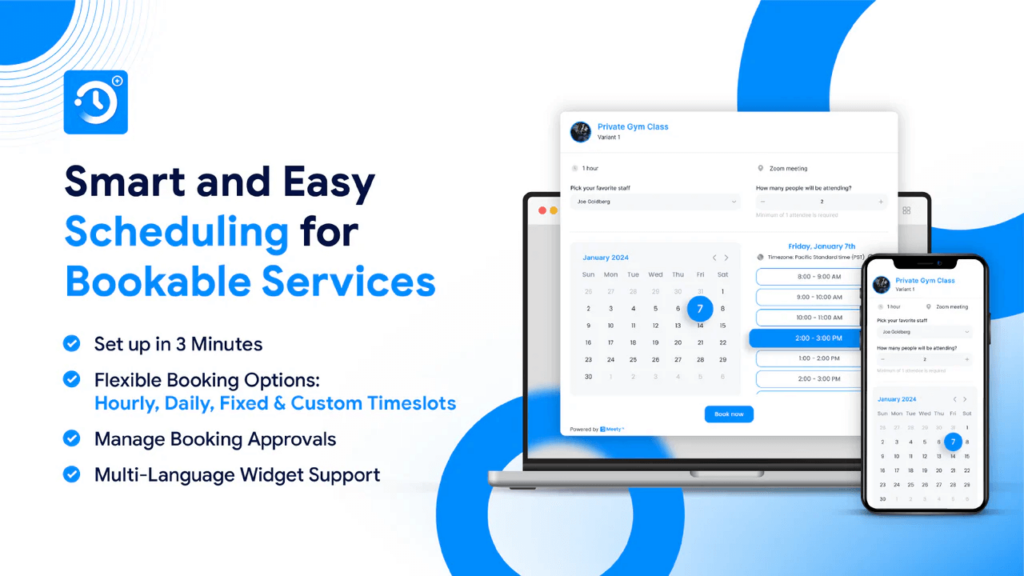
Pricing: FREE
Key features:
- Offer flexible booking types like hourly, daily, plus bundle & subscription.
- Create time slots with fixed or customized time intervals to suit your business.
- Control appointment booking approvals by auto and manual means.
- Automate email notifications to keep the customers updated on any changes in the booking status.
- Bring seamless sync to appointment schedules across Zoom, Google, and Outlook.
Event Calendar: Tickets & RSVP
The Event Calendar app is a robust tool that offers a wide range of features, including recurring events, ticket sales, and detailed analytics. This app is suited for businesses that host frequent events and need advanced functionality to manage them effectively.
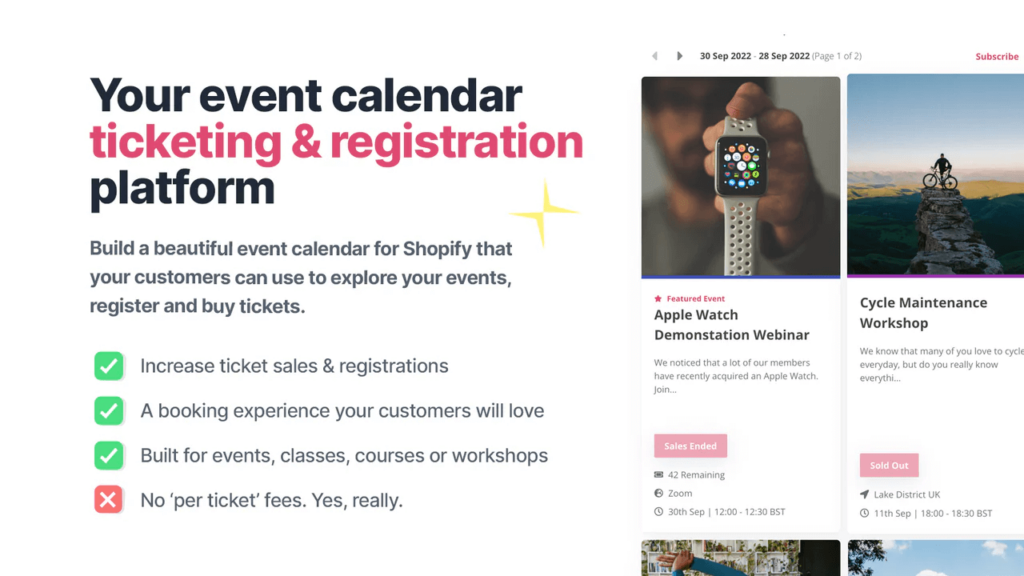
Pricing:
- Hobby: $39.99/ month
- Scale: $60/ month
- Business: $199/ month
Key features:
- Suitable for businesses operating events, classes, workshops, courses, and webinars.
- Fully integrates with Shopify’s checkout system.
- Custom form inputs. Dietary needs, phone number, etc.
- Easily export attendees for each event.
Pros & Cons of using an app:
Advantages:
- Advanced features: Features of most apps range from ticketing and RSVPs to email reminders, recurring events, and social media integrations – much more than just simple calendars.
- Customization: You are going to be better at controlling how the calendar looks and feels; most of the time, this involves a certain number of templates and design options at your fingertips.
- Dedicated support: The app developers usually offer customer support to assist in case any problem arises.
- Scalability: Apps can easily handle large quantities of events and will also be able to handle growing businesses without any problem.
Disadvantages:
- Cost: The majority of apps charge a monthly fee, adding to your increasing list of expenses.
- Integration effort: While most apps are extremely user-friendly, some technical setup may be required.
- App overload: Too many apps will slow down any website and make the administration of your store really complicated.
- Learning curve: You will need to invest some hours in learning how to use most of the features of the app efficiently.
Some interesting articles about Shopify features:
- How to add a Drop down Menu in Shopify (no coding required)
- Shopify Quick View Tutorial: Easy ways to add it to your store
The bottom line
Choosing between a theme and an app for your event calendar depends on your specific needs and the complexity of your events.
For Starters: If you’re just starting and need a simple, cost-effective solution, using a theme like Eurus is the best option. It offers seamless integration, no recurring costs, an easy setup process, and is perfect performance-wise.
For Advanced Users: If your event management needs are more complex, or if you require advanced features such as booking appointments and detailed analytics, using a dedicated app is the way to go.
By carefully considering your business needs and the features offered by themes and apps, you can choose the best solution to enhance your Shopify store’s event management capabilities and engage more effectively with your customers.

